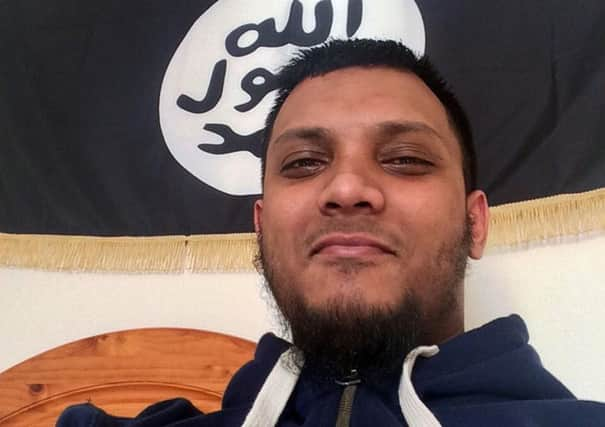Leader comment: Combating terrorism comes at a cost


The capture of Junead Khan before he was able to carry out his plan to attack a member of the US military with a knife in East Anglia no doubt at the least saved the intended victim from injury, but very probably from death.
It is also a validation of the means by which such attacks can be prevented. This case tells us that the measures taken can and do work. It also teaches us important lessons about the future prevention of such attacks.
Advertisement
Hide AdAdvertisement
Hide AdThe case reinforces the understanding that there are people in this country prepared to perpetrate outrages in the name of Islamic State, and that there are people in Islamic State outside this country capable of not just radicalising and encouraging but of actual physical help in preparing for attacks.
The government’s Prevent scheme, where potential terrorists are identified – sometimes by family and friends – and visited by police in an effort to turn them from that path has faced charges of being naive and ineffective.
Now, even although it failed in this case to divert Khan from radicalism – in fact he openly mocked the attempts – it did mean that police officers had a far greater idea of what Khan was capable of and they made sure they kept him on their radar. That may prove to be the biggest benefit that Prevent offers.
We also know that Khan was in touch with members of Islamic State using modern communications, including a conversation with Junaid Hussain through an encrypted web channel in which he was given instructions on bomb making and the procurement of the necessary ingredients. He was told to detonate the bomb if police uncovered his plot and came to arrest him.
Hussain has since been killed in an American drone strike and the US authorities said he was targeted because of his ability to “radicalise and inspire violence in foreign countries around the world”. Hussain was only able to carry out his evil role through use of modern communications.
Another use of the internet in this case was Khan researching buying a large knife with which to attack his intended victims.
So it comes down to monitoring. There are always fears of the government having access to spy on private information, there do have to be controls and checks and balances. But if conversations are taking place between here and abroad that will result in the death of individuals at the hands of terrorists, and those conversations can be picked up by monitoring and attacks prevented, then that is probably worth a price.
If Khan’s attempts to buy a knife had been spotted, and put together with his previous contact with the Prevent programme, then that might have been enough to prevent an attack.
Advertisement
Hide AdAdvertisement
Hide AdThe sad fact is that responding to the terror threat being levelled at Britain and others by Islamic State was always going to carry a cost, not just in employing people and paying for equipment, but also at a cost of some erosion of our personal freedoms. If we don’t we may be counting the costs in terms of the lives of the victims.